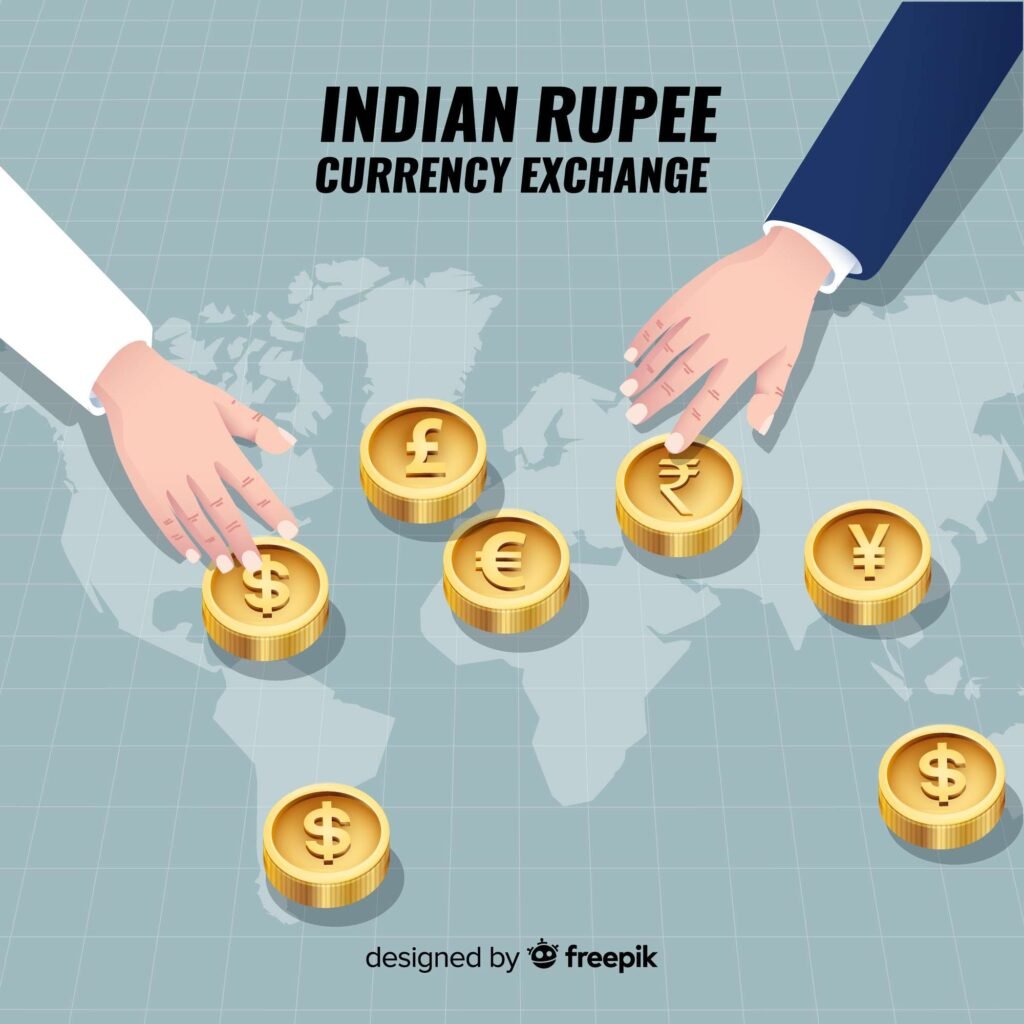
In today’s interconnected world, understanding currency conversion rates is vital. Whether you are a globetrotter planning a trip, an expatriate living abroad, or an entrepreneur engaging in international trade, knowing the conversion between different currencies is crucial. This blog aims to simplify the process of converting 1 Euro to INR.
Euro VS Indian Rupee Trend: March 2023
| March 2023 | EUR to INR |
| 1st March | 87.42 INR |
| 31st March | 89.54 INR |
| Highest Rate | 89.79 INR (March 23) |
| Lowest Rate | 86.38 INR (March 9) |
| Overall Performance | Rising |
| % Change | +2.37% |
How to Convert Euro to INR?
To convert Euro (EUR) to Indian Rupees (INR), you can use the current exchange rate. Please note that exchange rates fluctuate, so it’s essential to use the most recent rate for accurate conversion. Here are the steps to convert Euro to INR today:
- Find the current exchange rate: You can search online or use financial websites to find the current exchange rate between Euro and Indian Rupee. The rate will be displayed as 1 EUR = X INR. For example, let’s assume the current rate is 1 EUR = 90 INR.
- Multiply the amount of Euro you want to convert by the exchange rate: Let’s say you want to convert 100 Euros to Indian Rupees. Using the exchange rate from the previous step (1 EUR = 90 INR), you would multiply 100 by 90.
Calculation: 100 EUR * 90 INR/EUR = 9,000 INR
So, 100 Euros would be equal to 9,000 Indian Rupees.
The Importance of Currency Conversion
Currency conversion plays a vital role in international trade, travel, and finance. It allows individuals, businesses, and governments to exchange one currency for another, enabling seamless transactions and fostering economic relationships between different countries. When it comes to converting Euro to Rupee, understanding the importance of currency conversion becomes even more significant.
- International Trade
Currency conversion is crucial for facilitating international trade between the Eurozone and India. European businesses that export goods to India or import Indian products need to convert Euros to Indian Rupees to settle transactions.
The exchange rate between the two currencies directly impacts the cost of imported goods and the revenue generated from exports. Monitoring the EUR to INR exchange rate helps businesses make informed decisions regarding pricing, competitiveness, and profitability.
- Travel and Tourism
For individuals travelling from Eurozone countries to India or vice versa, converting currencies is an essential aspect of trip planning. Tourists need to convert their Euros into Indian Rupees to meet their expenses during their stay.
Whether it’s for accommodation, transportation, dining, shopping, or sightseeing, understanding the exchange rate ensures that travellers can effectively budget and manage their finances while abroad.
- Investment and Financial Transactions
Currency conversion is essential for investors and individuals engaged in financial activities. Investors who wish to enter or exit the Indian stock market by investing in Sensex or Nifty need to convert their Euros into Indian Rupees or vice versa.
Similarly, individuals involved in cross-border transactions, such as remittances or money transfers, rely on currency conversion services to send or receive funds.
- Economic Monitoring and Analysis
The EUR to INR exchange rate is closely monitored by economists, financial institutions, and governments. Fluctuations in the exchange rate can indicate the strength or weakness of both economies and impact various sectors, including import/export businesses, tourism, foreign direct investment, and more.
Analysing currency conversion trends helps economists and policymakers understand the overall economic conditions and make informed decisions.
Converting EUR to INR: The Factors
The process of converting one currency to another involves several factors that influence exchange rates.
1. Inflation: An Economic Indicator
Inflation determines exchange rates. The definition of Inflation refers to the rate at which the general price of goods and services increases in a country. A lower inflation rate indicates a healthier economy, leading to the appreciation of the currency.
2. Interest Rates and Balance of Payments
Interest rates, the balance of payments, and the supply of money are additional factors that affect exchange rates. The economic, social, and political conditions of a country also contribute to the strength or weakness of its currency. When positive factors align, such as stable economic conditions and favourable policies, a country’s currency tends to appreciate and becomes attractive to global investors.
3. Export-Import Dynamics
A country’s currency value is influenced by its export and import activities. The more a country exports goods and services, the stronger its currency becomes. Achieving a balance between imports and exports is crucial in determining the strength and value of a currency.
Conclusion
Understanding currency conversion rates, particularly the conversion between Euros and Indian Rupees, holds immense significance in today’s interconnected world. Whether it’s for international trade, travel and tourism, investment in the share market through NSE or BSE and financial transactions, or economic monitoring and analysis, currency conversion plays a vital role.
Factors such as inflation, interest rates, balance of payments, and export-import dynamics impact exchange rates between the Euro and the Indian Rupee. Being aware of these factors empowers individuals and businesses to make informed decisions and navigate the global economy effectively.
